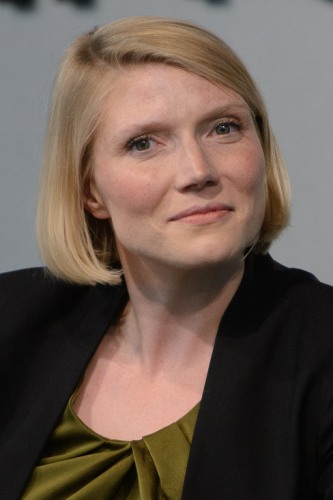
Cathryn Clüver Ashbrook
Biography
Cathryn Clüver Ashbrook '99 is a German-American political scientist and Executive Vice President at the Bertelsmann Stiftung. Previously, she was the director and CEO of the German Council on Foreign Relations. For well over a decade at Harvard Kennedy School, she directed the Future of Diplomacy Project, which she co-founded with U.S. Ambassador Nicholas Burns.
At Harvard's Belfer Center, she also directed two major multi-year research programs on Transatlantic Relations and India and South Asia. She served on the Management Board of the European Policy Centre in Brussels, worked in Beijing, Shanghai, Paris and Hamburg in management consulting for Roland Berger Strategy Consultants and began her career as a broadcast journalist for CNN-International in Atlanta and London. Cathryn writes widely on foreign policy, negotiation and diplomacy in academic journals and serves as a commentator in mainstream German, US, British and French media. She is a graduate of the Watson Institute at Brown University, the London School of Economics and Political Science (MSc European Studies) and the Harvard Kennedy School (MPA). She is an Eisenhower and Truman Project Fellow and serves on several non-profit boards and academic advisory councils on both sides of the Atlantic.
Research
Cathryn's research work focusses on transatlantic relations, in particular on foreign, security and trade policy and on emerging actors in geopolitics and geoeconomics (particularly cities and corporate actors).
For over a decade, she has also published on the intersection of technology with geopolitical interests, diplomacy and democracy, both in an academic context and by advising the foreign ministries of Germany, France and Peru on digital diplomacy and tech strategy.
Her work on urban diplomacy and the rising role of cities in international relations was recognized with an Eisenhower Fellowship. She served on the City & State Diplomacy Task Force (https://www.trumancenter.org/issues/report-of-the-truman-center-city-state-diplomacy-task-force) that supported the creation of the Office of State and City Diplomacy in the U.S. Department of State.
Publications
"Es wird noch ein harter Kampf für Harris," Interview, Tagesschau, August 28, 2024. https://www.tagesschau.de/ausland/uswahl/usa-demokraten-parteitag-harris-100.html
"Isolated Germany fears a second Trump term," Guy Chazan, Financial Times, July 22, 2024. https://www.ft.com/content/8ddc0901-dd80-4c60-bdb3-126d478e4a59
"German Businesses break with Post-War Taboo to supply defence sector," Financial Times, Arjun Neil Alim and Martin Arnold in Frankfurt, July 2 2024. https://www.ft.com/content/b19ea5ae-38a7-41ab-b2d8-2e694b06b5b1 Internationale Politik Special 2, May/June 2024, pp. 36-40,
"Wahlverwandtschaft in Gefahr" https://internationalepolitik.de/de/wahlverwandtschaft-gefahr
"Metrodiplomacy: The Rise of Digital Urban Networks" in Digital International Relations: Technology, Agency and Order, Bjola and Kornprobst, Routledge, November 2023. CIDOB International Journal, No. 134, September 2023, pp. 131-148. DOI: doi.org/10.24241/rcai.2023.134.2.131
"The Networked Power of Urban Diplomacy in Global Governance". https://www.cidob.org/en/publication/networked-power-urban-diplomacy-global-governance
"Tech Diplomacy and Tech Governance," Geopolitics, Governance and Diplomacy of Technology: Recent Trends in Democracy-Affirming Technologies, IE University, 2023. https://static.ie.edu/CGC/3.%20Tech%20Diplomacy%20and%20Tech%20Governance.pdf